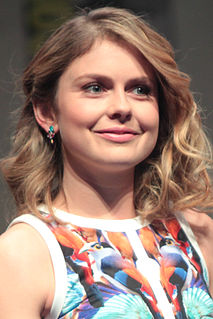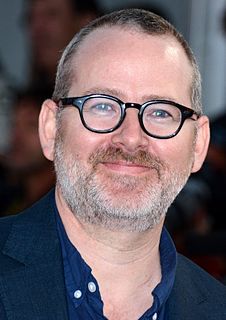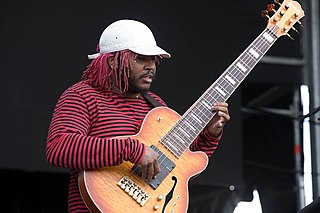A Quote by Christopher Eccleston
I used my instincts. It's very easy to imagine how you'd feel, actually. I just had to tell the narrative.
Related Quotes
That is very different from how it used to be in the 20th century. Media was very one way. There's a small little industry. It broadcasted its message and everyone else in the world just had to listen. Now the internet is allowing what used to be a monologue to become a dialogue. I think that's healthy and actually restoring a more natural way.
If you're a certain type of actor, then eventually stepping into a director's shoes is a natural transition. I've always been the actor who's very focused on the narrative, where my character is in the story, and how I can benefit the story. I've always had a technical aspect of what the lens is, how the camera is going to move, how I can feed the information the director applies within that move. If you're that type of actor, narrative-based, technically proficient, the next step is actually not that far.
For queer people, the personal is very political, just to talk about it in a public space. It's very political just to come out and take up that space and be like, 'This is my narrative. It's not an outsider narrative, and it's not a fetish narrative; it's just my story, and it's worth being told and listened to.'
I don't want to take shots at professional actors, because obviously the great ones are great. But I do think that given the kind of stories I've been telling in my films, it's hard for me to imagine how professional actors would have done better. And it's easy for me to imagine how they would have done worse. Because I think a lot of what an actor is trained to do and a lot of what an actor's instincts point toward is clarification, is always making it clear what's happening in the story, how the character fits into the scene, what the character wants.
I couldn't tell how many times I've been to Japan off the top of my head, I just have a few standout moments that were very defining and inspirational at different parts of my life. As far as moving there, I don't know. That's a tall order there. I feel there's people that go so far as to do that, and good for them, but I just can't. For me it's not a misplaced passion or a weird infatuation - it's more like I've just had a good chance to realize how immensely their art has affected our American culture, and I don't take it for granted. I've got a very big appreciation.
I'm obsessed with this idea of storytellers and people who have a narrative, and sometimes sustain a relationship because they're telling a narrative and someone is listening to that. Often the nature of the relationship is determined by how well they tell the story, or someone else's ability to suspend disbelief, or infuse into their narrative something which they may not even be aware of.
I do think the challenge, in a way for me, is to write a narrative film and when you finish watching it you feel like it's a collage. You tell the narrative, you tell the story, but you feel like you've created this tapestry. But it also has a shape, a story. So I think there's a middle ground that I try to strike... away from where everyone else seems ready to go, which is, setup, payoff. You know, He's afraid of water, oh, and at the end he's swimming in water - oh, my God. I hate that stuff.



































